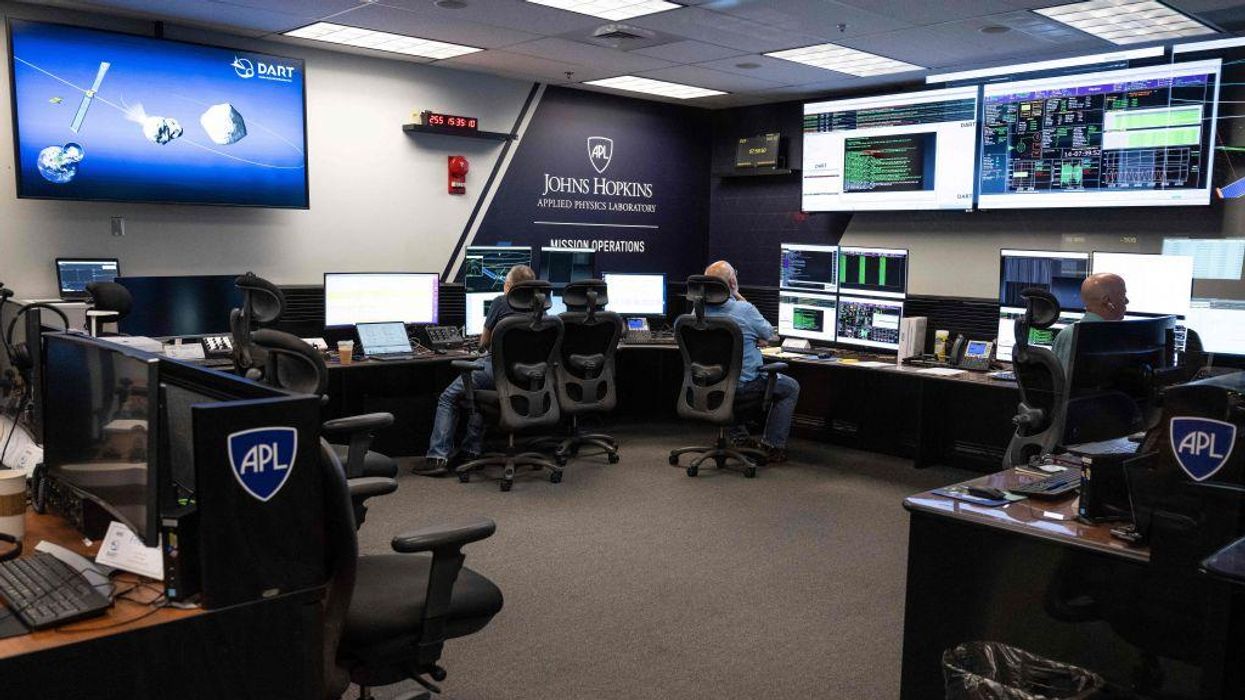
JIM WATSON/AFP via Getty Images

NASA successfully crashed a spacecraft into an asteroid Monday, in a demonstration of “the world’s first planetary defense technology.”
NASA created the Double Asteroid Redirection Test (DART) mission to test whether it can use a human-made spacecraft to redirect an asteroid headed to Earth. DART’s mission control was located at the Johns Hopkins Applied Physics Laboratory (APL) in Laurel, Maryland.
“This first-of-its-kind mission required incredible preparation and precision, and the team exceeded expectations on all counts,” said APL Director Ralph Semmel. “Beyond the truly exciting success of the technology demonstration, capabilities based on DART could one day be used to change the course of an asteroid to protect our planet and preserve life on Earth as we know it.”
“At its core, DART represents an unprecedented success for planetary defense, but it is also a mission of unity with a real benefit for all humanity,” said NASA Administrator Bill Nelson. “As NASA studies the cosmos and our home planet, we’re also working to protect that home, and this international collaboration turned science fiction into science fact, demonstrating one way to protect Earth.”
The spacecraft was launched last November. NASA used a SpaceX Falcon 9 rocket to send DART on its collision course with the asteroid Dimorphos. The spacecraft smashed into Dimorphos on Monday evening at 7:14 p.m. ET.
“DART’s success provides a significant addition to the essential toolbox we must have to protect Earth from a devastating impact by an asteroid,” said Lindley Johnson, NASA’s planetary defense officer. “This demonstrates we are no longer powerless to prevent this type of natural disaster.”
Experts say that it will be about two months before they can fully determine whether the hit was enough to successfully drive Dimorphos off its course. NASA noted that Dimorphos is not on course to hit Earth and does not pose a threat to our planet.
"We're embarking on a new era of humankind, an era in which we potentially have the capability to protect ourselves from something like a dangerous hazardous asteroid impact. What an amazing thing; we've never had that capability before," said Dr. Lori Glaze, the director of NASA's Science Mission Directorate's Planetary Science Division.